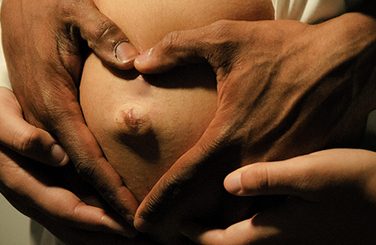E&M had the delight to meet with EU Panel Watch, on calling out panels in Brussels for their lack of diversity and advocating for debates that empower and give a platform to multiple voices and experiences.
E&M: To start with, can you tell us a bit about your background?
Laurel: I moved to Brussels five years ago to start my career as a journalist. I’ve reported on news in the Brussels bubble for the last five years and very quickly started to notice the unbalanced representation at events in the European capital. I’m about to move to Sydney and am curious to see how women are represented in public debates on the other side of the world.
Marika: I moved to Brussels to start my first job out of University and ended up working a few years on environmental policy at an NGO. I have since moved back to my home country Norway, but stop by Brussels ever so often to check on panel diversity.
Iva: My day job involves coordinating research on minority rights, migration and conflict resolution, but I also volunteer with a youth organisation and make feminist zines in my free time. I attend many Brussels events, and I’ve even spoken at a few, and it never ceases to amaze me how unrepresentative European public policy discussions are and how little imagination goes into event organisation.
Mari: I came to Brussels after university to take up a journalism traineeship at the European Parliament and have worked as a journalist ever since. I had been interested in feminism since studying in the UK but wanted to pursue it in a more practical way when I arrived in Belgium. So, it was a nice surprise when I discovered my colleague, Laurel, was one of EU Panel Watch’s co-founders! I’ve just moved to Manchester in the UK but will continue working with the organisation because, unfortunately, Brussels isn’t the only place where women are underrepresented.
E&M: How and when was EU Panel Watch created?
Laurel and Marika: Marika and I met through a mutual friend in Brussels, who brought a group of women together who were working in and around the energy and climate policy scene in Brussels. We’d all noticed the same thing, that panel events in Brussels were failing to represent half of the population affected by policies discussed here. So, we decided to start a campaign and set up our Twitter account @EUPanelWatch at the end of January, 2015. We immediately started hearing from people how welcome and needed the initiative was. This has kept us going and we’ve since run data-gathering campaigns called Monitoring Month and a series of workshops to make events both more diverse and more interesting.

E&M: Could you tell us a bit more about the campaign you run?
Mari: The aim of our campaign has always been to get a more diverse range of speakers on panels in Brussels, where women are hugely underrepresented. The city is so influential in terms of policy-making and we think it makes sense that the spaces for debate here should reflect our society. While our main focus is gender, we also want to see speakers from a wider range of national and ethnic backgrounds, too.
The campaign we run is largely an online one and we use Twitter to call out events with a poor gender balance. This ‘naming and shaming’ technique has been an effective one, partially because it’s embarrassing for individual organisations to be publicly highlighted, but also because it allows our followers to get involved by sending photos of events they’re attending.
We also do an annual ‘Monitoring Month’ where we collect data on the gender breakdown of the conference scene in Brussels and get a more detailed picture of the situation here. So, as well as finding out which organisations do badly (or well), we get a clearer idea of which sectors are particularly male-dominated.
This spring we’ve organised a series of workshops aimed at making debates not only more diverse but also more meaningful. We teamed up with speaker coach Elizabeth Van Den Bergh of Montis Public Speaking and had both men and women join us for practical sessions on public speaking, engaging journalists and moderating interactive events.
E&M: Why, in your opinion, is it so crucially important to have more inclusive panels, at the EU level and beyond?
Marika: Because it’s the people who talk who get to determine what is worth talking about and who is worth listening to. If it’s the same people talking all the time, there will be issues, views, and values that are excluded. That is a huge problem when we make policy decisions that affect everyone. Take artificial intelligence as an example. AI is mostly designed by white men. People of colour and people with different voice intonations are starting to notice that these products don’t work as well for them, because the technology doesn’t even recognise their faces and voices. It’s an example of how we are programming our biases. We do the exact same in policy making when we fail to include diverse voices.

E&M: Visual images like that collected on the (hilarious) Tumblr “Congrats, you have an all-male panel” strikingly highlight the lack of diversity in debates. Are there specific tools that have proved more effective than others in your campaign?
Mari: Feminists have an (undeserved) reputation of being humourless but we enjoy using memes and hashtags as a way of communicating with our followers. There are plenty of gender equality organisations in Brussels that do good work but we think our irreverence online gives us a particularly individual voice that sets us apart. Using Twitter has been effective simply because it’s so public. No one wants to be called out online, and we’ve had a fair amount of companies contacting us to tell us they won’t let a speaker of theirs present on a male-only panel, or ‘manel.’ But we’ve always been wary of forging too many links with companies – we want event organisers to fear us!
Our Monitoring Month has also always been an important tool for us. It’s so comprehensive – we monitor thousands of panelists – and while the results are often disappointing, they make us more determined to keep doing what we’re doing.
E&M: Have you noticed any evolution (positive or negative) since the creation of EU Panel Watch?
Laurel: When you make noise about a problem, it’s good to have some data to back up the claims that you’re making. That’s why each June (a busy conference month in Brussels), we decided to gather data on male and female speaker representation at events across different policy areas – from energy to employment and social affairs. Our first year of data gathering showed that just over 25 percent of speakers at events were women. Two years later, the figure had improved to just over 33 percent – it’s a good improvement, but our work isn’t done and the data we gathered in 2017 showed some stagnation since 2016. The complacency makes us think that people have only just started really listening to the cause, and there is still much to do! This is why we remain so passionate about changing the face of events not just in Brussels, but everywhere.

E&M: Do you have any advice for current and future event organisers to support more inclusivity?
Iva: The first step event organisers need to take is to acknowledge the problem and initiate a discussion about why diversity matters. When we talk about diversity, we don’t just mean intellectual diversity. There’s a lot of confusion about this. For example, we’ve been confronted by men who claim that an all-white, all-male panel can be just as diverse and that our emphasis on gender and other identities is flawed, but we truly believe that policy debates in Brussels will progress with more input from women, people of colour, the youth, and other underrepresented groups. Most of us will agree that diversity is beneficial, but many still struggle to take practical steps to make it happen.
Secondly, if you’d like to organise more gender balanced events, you need to put women on the team. Third, help your team set a few easy goals, such as: we will strive to include new voices by looking beyond professional titles. This is important, because there are fewer women at the highest levels. If you have concrete goals, you can always refer back to them when disagreements arise about who to invite. From my own experience, I can say that the most difficult part is getting everyone on board. Make sure that your organisation’s members, clients or partners are included in these discussions, or at the very least, that they are aware of your newly set objectives.
Lastly, don’t forget to ask your audience what they thought of your event and remember to collect data on speakers year-round. This can help your team re-assess challenges and devise new strategies for more diverse debates.
E&M: What can panelists do?
Iva: I have come across many testimonies by men who refused to speak at ‘dude fests’, most recently, for example, the Flemish culture minister Sven Gatz. I understand that most event organisers don’t know the final panel line-up when they contact potential speakers, and this makes it difficult for invitees to know what they are getting themselves into, but men can reach out to organisers before the event and ask whether the program is likely to be all-white and all-male. If the answer is yes, they can recommend a few women or people of colour, or decline to take part. Unfortunately, this puts pressure on event organisers who may only be following orders from higher ranking colleagues. That was me once, but let me assure you that back in the day I would have loved to tell my boss that someone refused to participate, because of our totally outdated approach to event organising. Trust me, we would have never had an all-male line-up again.
Part of being a feminist is supporting other women. Women and men should be prepared to share their contacts and promote the achievements of other women. For example, you can carry a list of inspiring women with you, and when someone complains about “not being able to find women” for a certain position or opportunity, you have a few names on hand to recommend.
To me, it’s also important that moderators and panelists pay more attention to their own biases. I’ve heard from many women that they’ve felt infantilised, because men were referred to by their titles, while women were called by their first name. I have attended events where moderators only let men in the audience ask questions. I also recently attended an event where an audience member shamelessly manterrupted and mansplained the matter at hand to a woman keynote speaker who had dedicated her entire life to the subject. If you are a panelist and you witness another woman struggling to get her point across, help a sister out. Giver her credit, call out mansplainers, and stand up to her manterrupters.

E&M: Do you know of other similar initiatives across Europe and the world?
Iva: On the other side of the Atlantic, there is Gender Avenger. They run campaigns and blog about representation. They even have an app to tally gender balance at events. There are many Twitter campaigns around the world, but I especially love “Academic Manel Watch” (@ManelWatchIre), a collective of Irish academics against the lack of gender parity in Irish academia, history, arts, culture, politics, and media. For panelists (or future panelists), I also recommend signing a pledge (www.owen.org/pledge) to never be a part of a male-only debate. On the other hand, conference organisers can turn to Brussels Binder, a database of women speakers, for inspiration and ideas.
E&M: What upcoming initiatives of yours should E&M readers look out for?
Laurel: We’re keen to develop eupanelwatch.com as a one-stop-shop for idea sharing on gender equality and are excited to write more blogs that will share our own ideas, but also those of anyone who wants to contribute to the discussion. We will continue to campaign for change via twitter, though our output may have a more international feel now, which feels like a good development as we’ve grown as a team.
Marika: We hope to organise more workshops on public speaking in the future as we’ve seen too many fatigued event-goers, who are tired of monologues and question-statements, and have a strong motivation to be part of a better events culture.
Iva: Also, after 3 years of data-gathering, we know that the situation in Brussels is shameful and that it’s barely improved. We want to keep collecting data and confronting the Eurobubble with concrete numbers, however, we will be changing up the methodology. You can expect EU Panel Watch to go “undercover” for a week in 2018 and determine whether anything has changed in terms of gender balance and diversity.
About the Interviewee

The lack of speaker diversity – of gender, age, colour, ability and more – can no longer be tolerated.
EU Panel Watch see events as arenas for change, not mere reflections of status quo.
EU Panel Watch challenge organisers, speakers and audiences to let more voices be heard.
Because what future is built with only the voices of a few?
We need better, more diverse debate that empowers and inspires bold ideas from the next generation of leaders.
Cover Photo: Breather (Unsplash)










